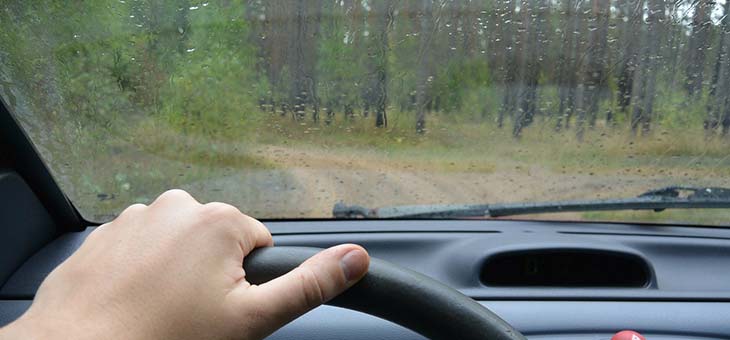Gary has sleep apnoea and is concerned about his ability to go on a long road trip. His need to hit the road is outweighing his concern, but he would like some tips to help him stay fresh and focused while he drives. We asked Mark Buckingham for his tips.
•••
Long road trips and extended periods behind the wheel can prove impossible for sleep apnoea sufferers or those who experience microsleep episodes frequently. Though driving with this condition is legal, fatigue can compromise your concentration and focus. And some states may require you to declare your health status before renewing your licence.
However, driving for long stretches is sometimes unavoidable, especially when travelling for work and/or when you need to be at a destination by a specific time. Don’t be caught out while driving; the following tips will help you stay awake on the road, ensuring safe travels for you and your passengers.
Rest before you leave
Driving when you’re exhausted isn’t the best way to start your long journey, as the fatigue will only intensify as you start driving. If possible, take a short nap before you set off, which should help to minimise your sleep debt in the process. Ensure your nap is as effective as possible; if you require a CPAP machine to sleep, use this during your nap.
Don’t let sleep take over
When you feel any drowsiness or the initial symptoms of microsleep, take a nap. Pull your car over to a safe, sheltered part of the road, and ensure your nap doesn’t last longer than 20 minutes. Before taking to the road again, give yourself up to 15 minutes to wake up fully, checking you’re alert and ready to drive safely. A quick walk in the fresh air will help to revive you.
Drink caffeine carefully
Before your long drive, drinking coffee or caffeine-based drinks will help you stay awake for extended periods. However, there’s a balance between enough caffeine to stimulate your journey and too much, affecting your sleep negatively. Excessive caffeine consumption can be highly detrimental for sleep apnoea sufferers, especially those who struggle to fall asleep or stay asleep throughout the night. Limit your caffeine use to the morning, restricting it to only when you need it the most.
Don’t drive alone
One of the main reasons why people fall asleep behind the wheel is because they’re the only driver, so they can’t afford to stop, take breaks or rest. Sharing the driving is best; when possible, drive with a friend or loved one who can share the driving duties with you, swapping every two to three hours.
Even if you can’t swap, a passenger will help you stay alert through conversation, relieving the boredom which leads to yawning and microsleep. If you are driving alone, keep your car cold, as a warm environment can induce sleep, and try playing the radio loudly to stimulate your mind.
Article originally published on www.cpapsales.com.au and republished here with permission of the author. If you enjoy our content, don’t keep it to yourself. Share our free eNews with your friends and encourage them to sign up.
Related articles:
https://www.yourlifechoices.com.au/travel/self-drive-holidays/australias-road-trip-renaissance
https://www.yourlifechoices.com.au/travel/self-drive-holidays/road-trips-to-bushfire-affected-regions
https://www.yourlifechoices.com.au/travel/destinations/ten-tips-for-happy-road-trips

